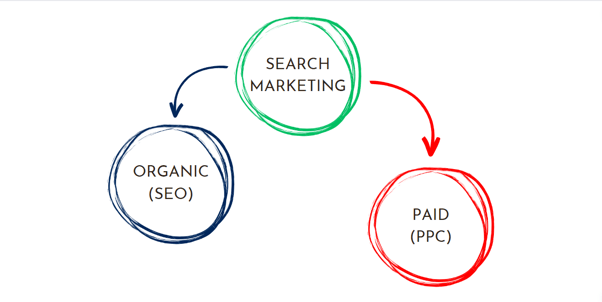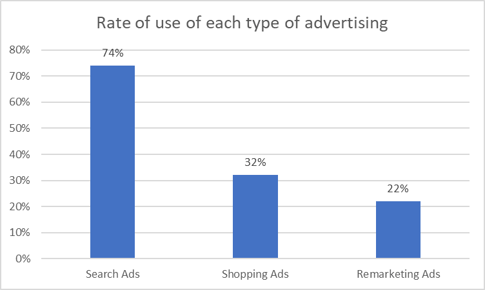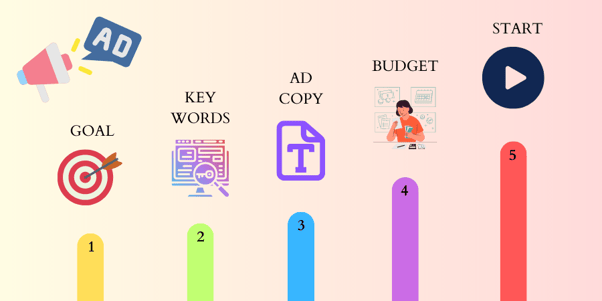In this article, we'll cover a few proven paid search marketing strategies that can be used to achieve success in the online marketplace.
Content
What Is Paid Search Marketing?
Types of Paid Search Marketing Strategies
Setting Up a Paid Search Marketing Campaign
Measuring the Success of a Paid Search Marketing Campaign
The Most Common Paid Search Marketing Mistakes
The Feature of Paid Search Marketing
Introduction
Paid search marketing is an effective means that can be used to reach your target audience and increase website traffic. Using platforms such as Google Ads, businesses can create targeted ads that appear at the top of search results pages, which can help them attract more qualified leads, increase conversions and boost revenue.
However, getting the most out of paid search marketing requires having an effective strategic approach in place. Companies need to choose the right keywords, create compelling ad copy, and optimize their campaigns over time to get the best results.

What Is Paid Search Marketing?
Paid search marketing is a type of advertising that allows businesses to place ads on search engine results pages (SERPs). These ads typically appear above or below organic search results and are labeled as "sponsored" or "advertorial".
Paid search marketing works on a pay-per-click (PPC) model, which means that companies only pay when someone clicks on their ad. Advertisers bid on specific keywords that relate to their products or services, and their ads appear when a user types in those keywords.
The success of a paid search marketing campaign depends on a number of factors, including the relevance of the keywords, the quality of the ad text, and the effectiveness of the landing page to which the ad leads.
Types of Paid Search Marketing Strategies
There are several types of paid search marketing strategies that businesses use to promote their products or services. Here are some of the most commonly used ones:
- Search Ads: These are the most common type of paid search ads. They appear at the top or bottom of the search results page and are triggered based on specific keywords. Search ads can either be text-based or contain images and other multimedia.
- Shopping Ads: Shopping ads are for businesses that sell products online. These ads include an image of the product along with its price and appear at the top of the search results page.
- Remarketing Ads: Remarketing ads target users who have previously visited a company's website or interacted with the company in some way. These ads can help re-engage with users who are more likely to convert.
Each of these paid search marketing strategies has its own strengths and weaknesses. By experimenting with different ad types and targeting strategies, you can find the approach that best suits the specific goals of any business.
According to a survey by the Digital Marketing Institute, based on a sample of 423 digital marketing professionals across industries and regions, the types of ads used among organizations in 2019-2020 were as follows:

Setting Up a Paid Search Marketing Campaign
Setting up a paid search marketing campaign may seem challenging at first, but with the right approach it's a relatively simple process. Here are the key steps to setting it up successfully:
- Define your goals: Before you start, it's important to define your campaign goals. Do you want to increase traffic to your website, generate leads or increase sales? Clear goals will help you make informed decisions about targeting, ad copy and budget.
- Conduct keyword research: the success of your paid search marketing campaign will largely depend on the keywords you target. Conduct thorough keyword research to determine which keywords are most relevant to your business, and make sure you're targeting the keywords your target audience is actually searching for. Make sure your landing page is also optimized for the keywords you're targeting, and that it provides a direct path to conversion.
- Create compelling advertising text: Once you've identified your keywords, it's time to create your ad text. Your ad should be clear, concise and compelling, with a strong call-to-action that encourages users to click through to your website.
- Set a budget: determine how much you are willing to spend on a paid search marketing campaign. You can set a daily budget and adjust it over time based on the performance of your ads.
- Start your campaign: Once you've set up your campaign, it's time to launch it. Carefully monitor your ad performance and adjust your targeting, ad copy and budget as needed to optimize your results. Once you've set up your campaign, it's time to launch it. Carefully monitor your ad performance and adjust targeting, ad copy and budget as needed. Don't forget to monitor your competitors' ads and bidding strategies to stay competitive and take advantage of market opportunities.
By following these steps, you can set up a paid search marketing campaign that is targeted, effective and designed to achieve your specific goals.

Measuring the Success of a Paid Search Marketing Campaign
Measuring the success of your paid search marketing campaign is essential to understanding its impact on your business. Here are a few key metrics to track when measuring the success of your campaign:
- Click-through rate (CTR): Click-through rate measures the percentage of people who clicked on your ad after seeing it. A higher CTR means that your ad is resonating with your target audience.
- Conversion Rate: the Conversion Rate (CTR) measures the percentage of people who completed a desired action, such as filling out a form or making a purchase, after clicking on your ad. Tracking your conversion rate helps you understand how effective your ad is at generating leads or sales.
- Return on Investment (ROI): ROI measures the amount of revenue generated by your campaign compared to the amount spent on advertising. A positive ROI means your campaign is generating more revenue than it costs, while a negative ROI means your campaign is not generating enough revenue to cover its costs.
- Cost Per Click (CPC): cost per click measures the amount you spend for each click generated by your campaign. Tracking CPC helps you know if your bidding strategy is effective and if you're getting a good return on your investment.
- Quality Score: Quality Score measures the relevance and quality of your ads and landing pages. A higher Quality Score can help you achieve better ad placement and lower costs.
The Most Common Paid Search Marketing Mistakes
Although paid search marketing can be a very effective tool, there are a few common mistakes that companies often make.
One of the most common mistakes is incorrectly defining goals and target audiences. This can result in poorly targeted ads, unnecessary ad spend, and low conversion rates.
Another common mistake is neglecting to regularly monitor and analyze campaign metrics, leading to missed optimization opportunities and unnecessary ad spend.
The last common mistake is using generic ad copy, not optimizing landing pages, and not setting tracking and conversion goals properly.
The Future of Paid Search Marketing
As technology evolves, so does the paid search marketing landscape.
One of the new trends is the increasing use of artificial intelligence and machine learning to optimise advertising campaigns. These technologies can help businesses better target ads and increase conversions.
Another trend is the rise of voice search, which presents both challenges and opportunities for paid search marketers. With the growing popularity of voice assistants like Siri and Alexa, businesses will need to optimize their ad content for voice search queries.
In addition, there is an increasing emphasis on privacy and data protection, which may impact the ways in which advertisers collect and use data for ad targeting. As these trends and technologies continue to evolve, businesses will need to keep up with the times and adapt their paid search marketing strategies accordingly.
Conclusion
Paid search marketing is an effective tool for businesses looking to increase their visibility and increase not only traffic to their website, but also leads and sales. By targeting relevant keywords and creating compelling ads, businesses can reach their target audience at the exact moment they are looking for a particular product or service.
To get the most out of your paid search marketing campaigns, it's important to follow best practices and continually monitor and optimize the results you achieve. By choosing relevant keywords, creating compelling ad copy, and testing and refining your strategy over time, you can achieve success and meaningful results for your business.
Be sure to set clear goals for your campaigns, track key metrics like click-through rates, conversion rates and ROI, and use data to make informed decisions about targeting, ad copy and budget. With the right approach, paid search marketing can be a powerful tool for growing your online business, and we're happy to help, so don't hesitate to contact us.
FAQ
1. What is paid search marketing?
Paid search marketing is online advertising where companies pay to display their ads on search engine results pages (SERPs) or other websites.
2. What are the benefits of paid search marketing?
Paid search marketing can increase your online visibility, reach your target audience and increase traffic and the number of leads or sales.
3. How to set up a paid search marketing campaign?
Choose a platform, conduct keyword research, create compelling ad copy, set your budget and bidding strategy, and launch your campaign. Track key metrics such as click-through rates, conversion rates and ROI.
4. How much does paid search marketing cost?
The cost of paid search marketing varies depending on factors such as platform, keywords and competition. Advertisers typically pay on a cost-per-click basis.
5. How does paid search marketing work?
Paid search marketing displays ads to users who search for certain keywords or view certain websites. Advertisers bid on keywords or audience demographics, and the search engine shows users the ads with the highest bids.